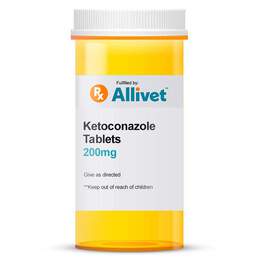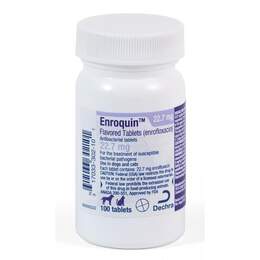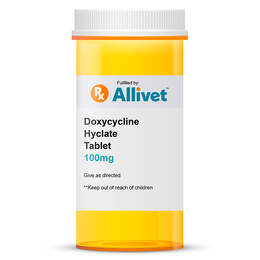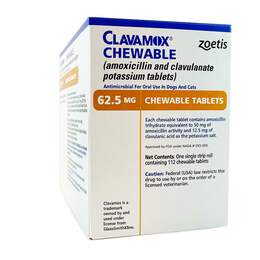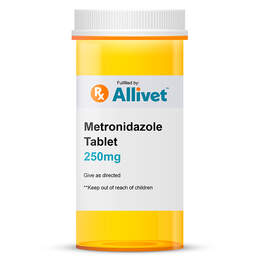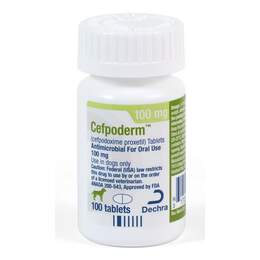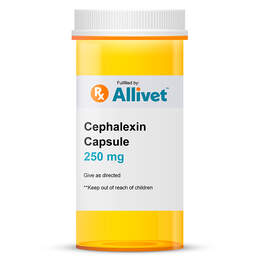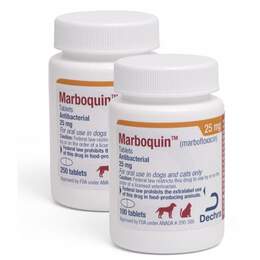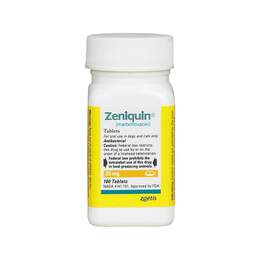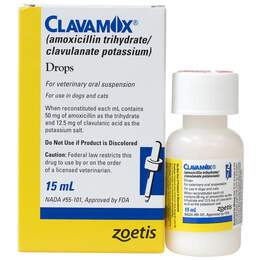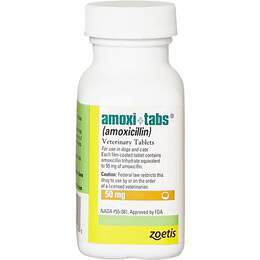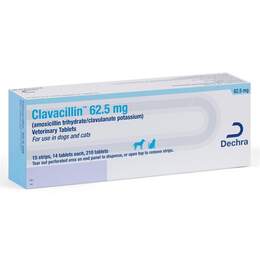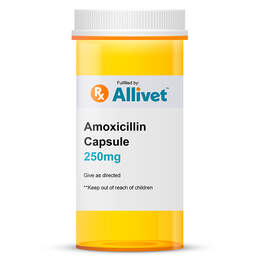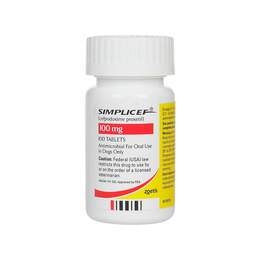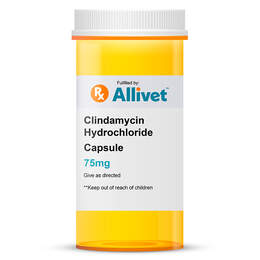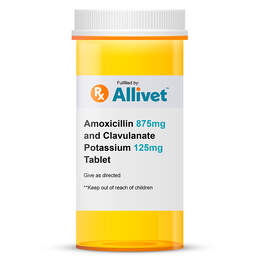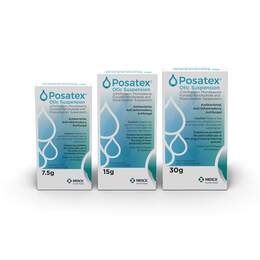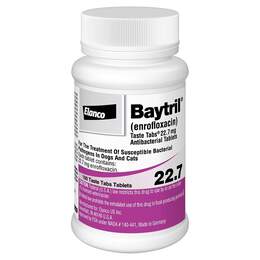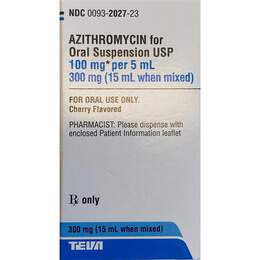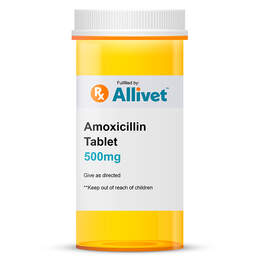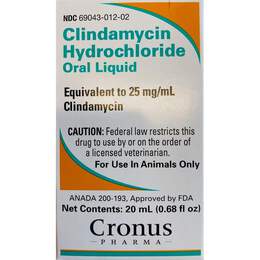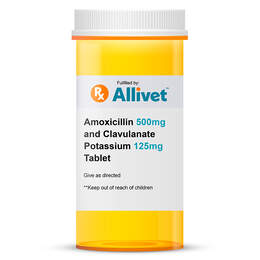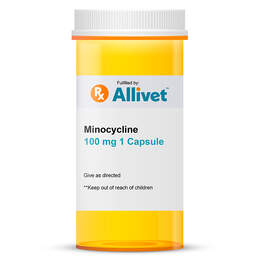Antibiotics for Dogs
What do antibiotics for dogs treat?
Dogs are likely to encounter at least one infection in their lifetime. Your dog may suffer from respiratory infections, urinary tract infections, and more. Antibiotics are effective against bacterial infections, but not against viral infections.
The best antibiotic for your dog’s condition will depend on the type of infection your dog is suffering from. Antibiotics are either bactericidal (which work to kill bacteria) or bacteriostatic (which prevent bacterial growth and reproduction). Following a discussion with your vet, you’ll be able to buy antibiotics for your dog’s infection at the best price from Allivet and help your dog heal!
What are the most common conditions treated by antibiotics for dogs?
- Pneumonia – This respiratory disease is caused by inflammation of the lower respiratory tract or lungs. Most pneumonia in dogs is associated with a bacterial infection. Bacterial pneumonia can also be caused by adenovirus, influenza, or parainfluenza. Some of the most useful antibiotics for treating pneumonia in dogs include Albon, Azithromycin, and Naxcel.
- Ear infections – Dogs’ ears have a tendency to hold in moisture and bacteria or allow infective parasites and debris to enter easily. Otitis externa, interna, and media are three of the common types of ear infection in dogs. If the ear condition is not susceptible to antibiotics, your veterinarian might suggest a different course of treatment for your dog’s ear condition. If the infection is determined to be associated with susceptible bacteria, some of the most frequently-prescribed antibiotics for ear infections in dogs are Simplicef, Amoxicillin, Posatex, and Tresaderm.
- Wound infections – Dogs can suffer from many types of wounds. Because those wounds are open and bothersome, dogs tend to lick or scratch them, leaving them open to the environment and susceptible to infection. Your veterinarian might recommend Clindamycin, Albon, Cefpoderm, or Clavamox.
- Respiratory infections – Dogs are prone to many types of respiratory infection associated with common canine diseases, including kennel cough, canine influenza, distemper, and more. Veterinarians often prescribe a potent antibiotic like Minocycline, Ciprofloxacin, Amoxi-Tabs, Sulfamehoxazole, or Trimethoprim.
- Periodontal and dental disease – Dogs can show signs of oral diseases at any age. While a dental care routine is important, dogs can still get a dental or periodontal infection. Bacteria can wreak havoc on your dog, starting in the teeth or gums and slowly causing serious health issues if they aren’t treated. A few of the best antibiotics for treating infections in dogs’ teeth and gums are Metronidazole, Clindamycin, Clavicillin, and Antirobe.
- Bone infections – Bone inflammation and infection are often associated with bacterial infection, including Staphylococcus (staph) and Streptococcus (Strep). Bone infections are serious and may require surgery, medical procedures, and/or antibiotic treatment. Your veterinarian may recommend an antibiotic shot for dogs, or they might prescribe an oral antibiotic like Clintabs, Rilexine, Clavamox, or Enroquin.
- Skin infections – Dermatological problems in dogs have many causes. Dogs are susceptible to skin issues because of their alkaline pH, lack of a follicular lipid plug, and fragile skin barrier. Soft tissue and skin infections are commonplace, and veterinarians often recommend administering an oral antibiotic for dogs in conjunction with topical treatments. Your vet might prescribe or recommend medicated antibiotic shampoo for dogs or a topical spray product. Antibiotic wipes for dogs can be a quick daily or on-the-go complement to oral antibiotics, and antibiotic cream for dogs can also offer much-needed relief of skin conditions. Certain antibiotics will be required for staph infection and/or pyoderma, which are particularly difficult and dangerous infections in dogs. Dogs can also suffer from yeast infections, which can often affect the paws and require antibiotic treatment. Some of the best oral antibiotics for skin infections in dogs include Enroquin, Cephalexin, Ketoconazole, and Zeniquin.
- Urinary tract and bladder infections – While certain breeds are more susceptible to UTIs, any dog can suffer from urinary stones or other urinary conditions. Bacteria enter the urethra through debris or feces, leaving your dog with a bothersome and sometimes painful infection. Some of the best antibiotics for treating bladder infections and UTIs in dogs are: Zeniquin, Cefpodoxime, Viceton, and Baytril.
- Eye infections – Some of the most common eye infections in dogs include conjunctivitis, uveitis, and other inflammatory conditions of the tear glands, eyelids, or cornea. These can be caused by many viruses or bacteria, and might be secondary to other diseases like Lyme disease or ehrlichiosis. Your veterinarian is likely to recommend an ophthalmic solution or ointment to use to treat your dog’s infection. They might also prescribe oral antibiotics to treat your dog’s eye infection.
- Gastrointestinal infections – Gastroenteritis is gastrointestinal tract inflammation. The cause of this condition can be a virus, a parasite, bacteria, and more. When caused by bacterial infection, antibiotics for dogs can be a useful treatment. A couple of the best antibiotics for GI infections are Biomax and SMZ Sulfa Trimethoprim.
What should I consider before starting my dog on antibiotics?
The infections listed above just a few of the most frequently-encountered infections in dogs. Pet parents are often concerned with the repercussions of antibiotic treatment for dogs, including diarrhea and other gastrointestinal issues. While antibiotics work to kill susceptible bacteria, they can also kill some of the “good” bacteria in your dog’s gut. This can lead to stomach upset. Your veterinarian may recommend probiotics or stomach-coating medications to support your dog through antibiotic treatment.
Dewormer for dogs is often prescribed with supportive antibiotic therapy. Because worm infestations can lead to secondary infections, these medications are often used concomitantly. You might be surprised to receive an antibiotic prescription for your dog when they are infected with worms, but antibiotics can help get your dog on the road to recovery when they are diagnosed with worms.
Speak with your veterinarian about the many options for antibiotic treatment in dogs. Many options are surprisingly affordable for pet parents concerned with the cost associated with buying antibiotics for dogs. Choose Allivet to conveniently and affordably fill all of your dog’s prescriptions!


